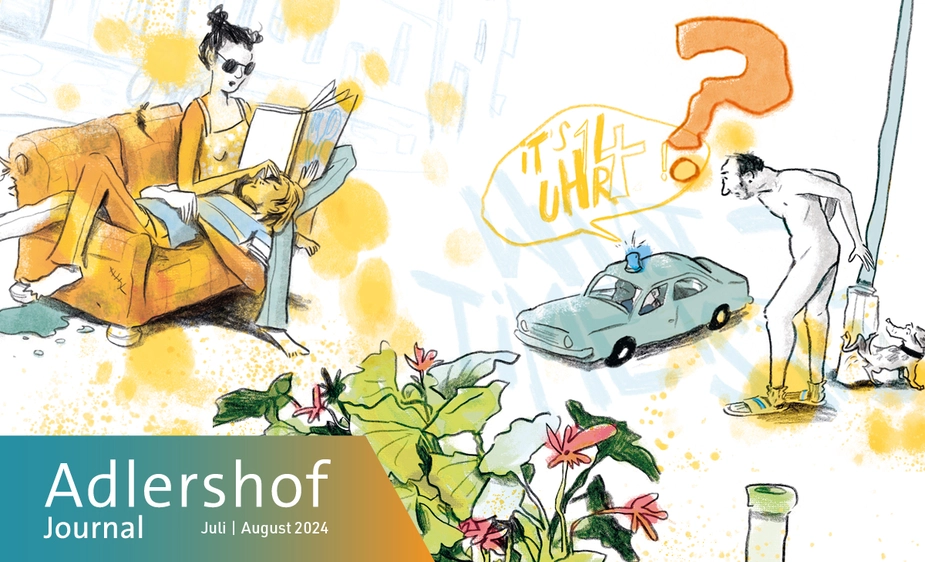The small-town gaze
Essay by Paul Bokowski, writer and satirist from Berlin
It’s not even ten. Even though the builders from the Oderbruch are already saying »Mahlzeit«, implying that its lunchtime. It took two decades for them to greet me actually. Mind you, they are different people every spring. It appears that whom you greet is something that is inherited in the Oderbruch. This year, I was accepted. With a bit of luck, and if I don’t let it get to my head, it will stay this way.
The neighbourhood is still looking sleepy. There’s nothing much going on our end of the road. Somebody is sweeping cigarette butts into the gutter in front of the betting shop. Berlin, the functional part, begins at the next crossing. This side belongs to small business owners and their clients. I am using euphemisms. But with every semester’s thaw, the sea levels rise and wash the kinds of people to the shore that then populate co-working spaces and refurbished flats.
The last big wave carried Dennis into the neighbourhood. He beams in my face. »This neighbourhood,« he says. »It. Drives. Me. Crazy.« Dennis likes to say that. He doesn’t say it the way I would. The fact that we moved here from the same district town, 20 years apart, into the diaspora, that we live in the same street, in the same house, on the same floor, completely by chance, makes him trust me. I am still undecided whether he might be wrong.
We are sitting in his loggia, overlooking the neighbourhood. For the past hour, a naked man has been walking up and down the street, shouting incessantly: »What time is it? WHAT TIME IS IT?« I must see that, he says. Maybe he’s shouting because nobody is answering him. It’s a bridge day. Everybody has left. There is a beach below these trainers. There are only two people sitting on the corner. A young couple. I’m guessing they’re French. »Portuguese!« says Dennis. »It sounds like Hungarian! If it sounds like Hungarian, then they’re Portuguese.« He’s been in Berlin eight months and already has a Master’s in tourism studies.
The couple is sitting on a dumpster couch. The couch has been here longer than Dennis. There’s a look of disgust on every one of the sporadic passers-by. And the thought of »If they knew.« He is resting his head on her legs and pouring beer into his mouth. She is caressing his forehead and reading to him. Mournfully and with a stern voice. It’s like the poetry of the Soldier King. The sun is pouring light over the couple. It’s almost theatrical. We then start to recognise what she’s reading. It’s an Ottolenghi book she found in a box. »Amazing!«, Dennis whispers to me. »This neighbourhood! »It. Drives. Me. Crazy. He’s resting his chin on the balcony railing. I can’t help but think of old Ms Kulke, who was stuck to this railing for 40 years, smoking herself to death. »If he knew.«
